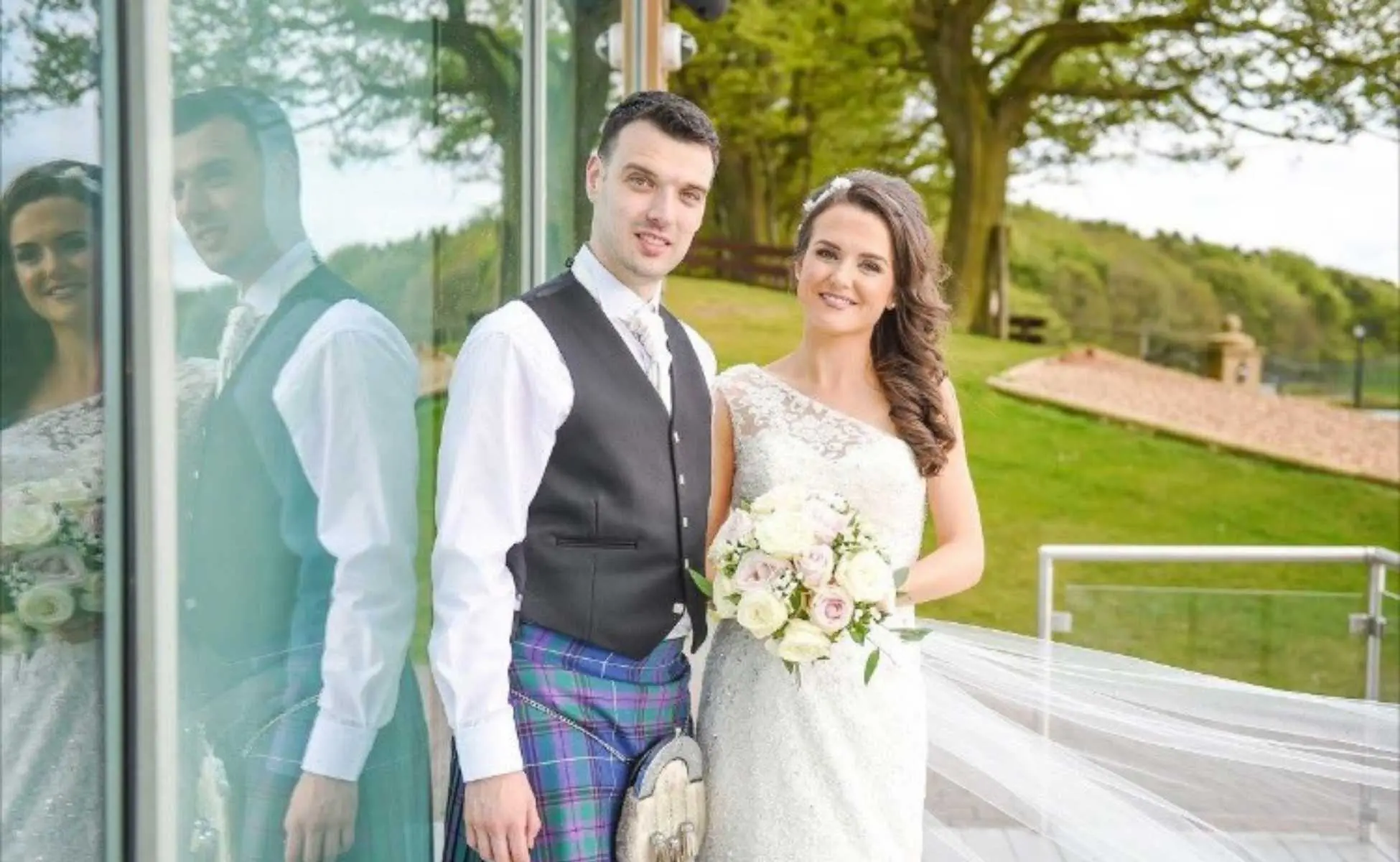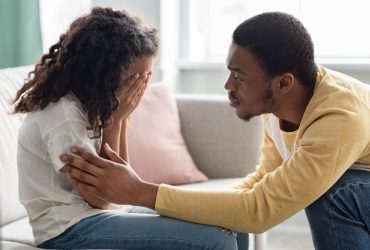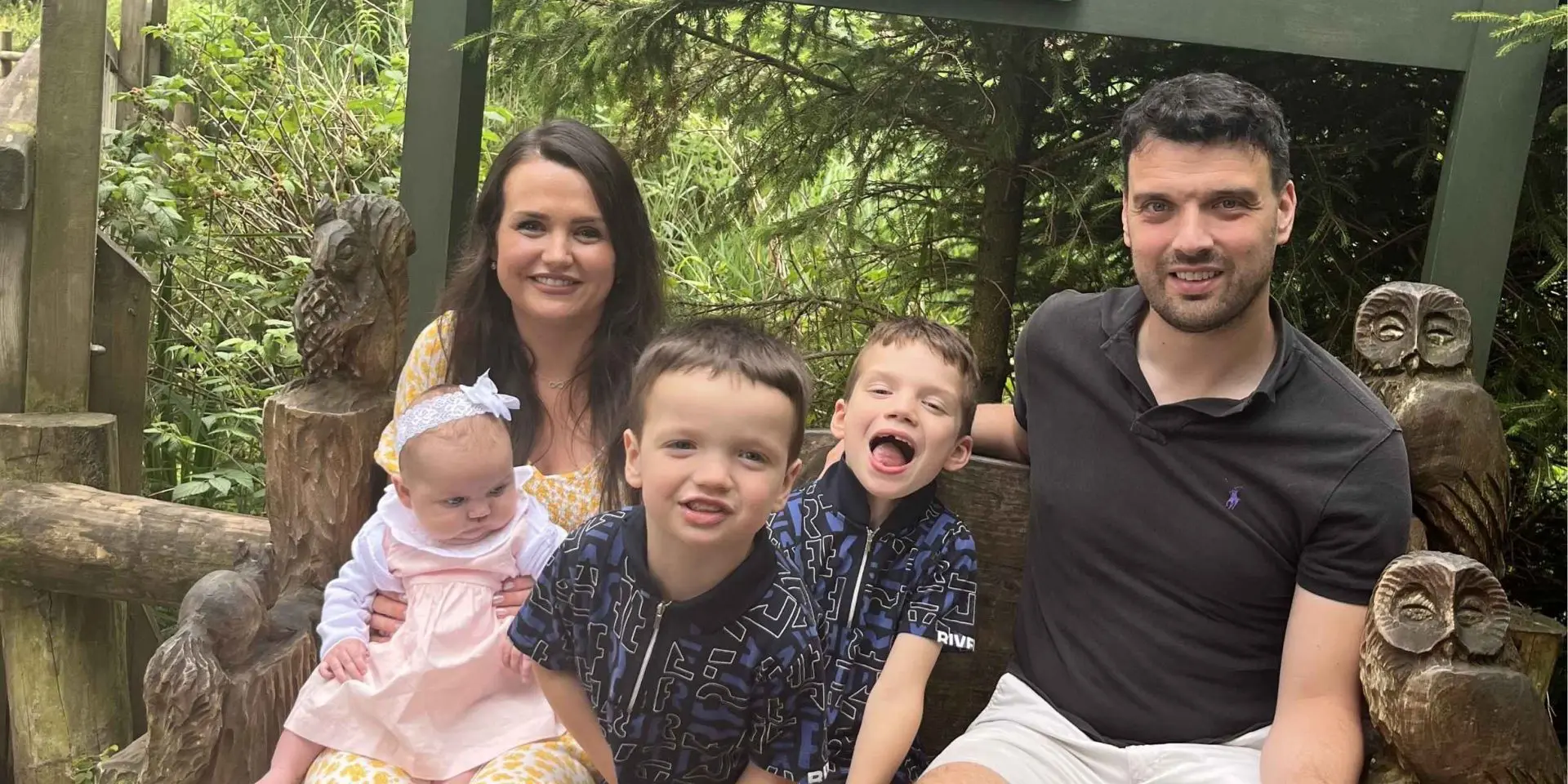WAY Widowed and Young member Lisa shares how she navigated grief after her husband took his own life two and half years ago – and explains how Winston’s Wish helped her to support her three young children.
On 7th March 2023, my life came crumbling down unexpectedly. The police came to my front door as I was getting my three children ready for bed and delivered the most shocking news. My husband Alan, the father of our three children aged six, four and ten months, had taken his own life after finishing his work as a dentist.
I couldn’t believe it. There had been no signs at all. I had spoken to him normally throughout that day, never imagining it would be the last time. In that moment, I thought my life was over. But my children had already lost one parent, and I knew I couldn’t let them lose the other by hiding away and becoming a shell of myself. I had to find a way to fight for them, and for me.
Telling my children how their dad had died
One of the hardest things I’ve ever had to do was explain to my children that their dad had died by suicide. I turned to Winston’s Wish for advice. Their guidance helped me find the words I didn’t think I had, and it gave me confidence that I was handling such a painful conversation in the best way possible for my children’s ages.
Two of my children are currently awaiting autism diagnoses, which has made navigating grief more complex. My eldest son, in particular, struggled deeply with processing his emotions. He didn’t cry for six months and instead expressed his pain through anger and frustration. Watching him battle with feelings he couldn’t put into words was incredibly hard, and it reminded me that each child’s grief looks very different. Supporting them meant learning patience, finding specialist advice, and accepting that their healing would take time and its own path.
My children’s school also uses Winston’s Wish’s online resources to support them in the classroom, which makes a huge difference. It means the teachers have tools to understand what my kids might be going through and how best to support them day to day.

Grieving for someone who died by suicide
Suicide grief is something you can never prepare for. It feels toxic at times. You experience every emotion possible – anger, guilt, despair – all overwhelming, and all without answers.
What struck me most in the months that followed was how little people talk about suicide. It’s still such a taboo subject, and often people don’t know what to say. Some avoided me because they were uncomfortable, while others came forward with incredible compassion. Both reminded me how important it is to break the silence around mental health and suicide.
Alan’s death left me with countless questions I’ll never have answers to. There’s a particular kind of pain that comes from not understanding “why”. But alongside that pain, I’ve also learned how vital it is to keep speaking about it. By sharing my story, maybe I can help others feel less alone and most importantly, encourage people to reach out before it’s too late.
Looking after myself and my grief, while also being a parent
In those first weeks and months, it felt like I was in survival mode: trying to keep life functioning for the children whilst barely holding myself together. Bedtime routines, school runs, nappies, packed lunches. Once small, everyday tasks felt impossible, and I was doing it all alone.
Children don’t pause their needs when you’re grieving. They still need love, stability and reassurance. And in many ways, that saved me. Focusing on their routines gave me a sense of purpose and structure at a time when everything else felt shattered. Keeping some normality for them also helped me to keep moving forward, one single day at a time.
Alongside caring for the kids, I realised I also had to look after myself if I was going to be strong for them. Exercising, even in small ways, gave me an outlet for stress, and counselling helped me process emotions I couldn’t untangle alone. Investing in my own mental and physical health wasn’t easy, but it was essential to get through the darkest days. Healing myself was part of healing my family too.
Finding support
I am not the only one in this position. That’s something I’ve come to learn by connecting with others who have walked a similar path. I joined WAY Widowed and Young, a network for people who lose their partners at a young age. Meeting up with other widows and their children has been life-changing. The WAY Facebook group has also been a lifeline. Every question I could possibly think of has already been asked by someone else, and there’s always someone ready to listen or share advice.
Seeing people further on in their journey gives me so much hope for the future, and it allows my kids to engage with peers going through the same thing. They don’t feel “different” when surrounded by children who truly understand.
Looking to the future
It’s now well over a year since Alan died, and though the pain hasn’t disappeared, I’ve found ways to live alongside it. I still cry, I still grieve, but I also smile and laugh again and truly mean it. I see joy in my children’s achievements and how resilient they’ve been despite everything they’ve lost.
Grief has no timeline, and there are still hard days: birthdays, anniversaries, or the moments when the absence feels sharp. Winston’s Wish offers resources for each age group, and I plan on creating memory stones with my children at Christmas to put next to Alan’s grave.
Alongside the hard days, there are also days when I feel hopeful. Days when I believe the future for us isn’t defined by our tragedy, but by love, growth and strength.
I share my story because I want others to know that life can continue after loss. It won’t ever be the same, but it can still hold meaning, joy and connection.
If you’re grieving, please know you don’t have to do it alone. There are support groups, charities and people who will sit with you in the darkness until the light begins to return. And if you’re struggling with your mental health, please reach out – to a friend, a family member or a helpline. Tell anyone. Talking can save lives.
Lisa vlogs about her experiences on Instagram and TikTok @the_widowdiaries.

About WAY
The WAY Widowed and Young community offers a safe space to talk to other people (both with and without children) who understand how it feels to be widowed at a young age.
Find out how WAY can support you, if you’ve been widowed before your 51st birthday, at www.widowedandyoung.org.uk


Coping with bereavement by suicide: Thoughts from WAY members
Members of the charity WAY Widowed and Young share their thoughts on coping with bereavement by suicide and how to look after themselves and their children.

Suicide bereavement support
Winston’s Wish offers specialist suicide bereavement support for children and young people (up to 25) and their families when someone has died by suicide. Find out how to access support.


